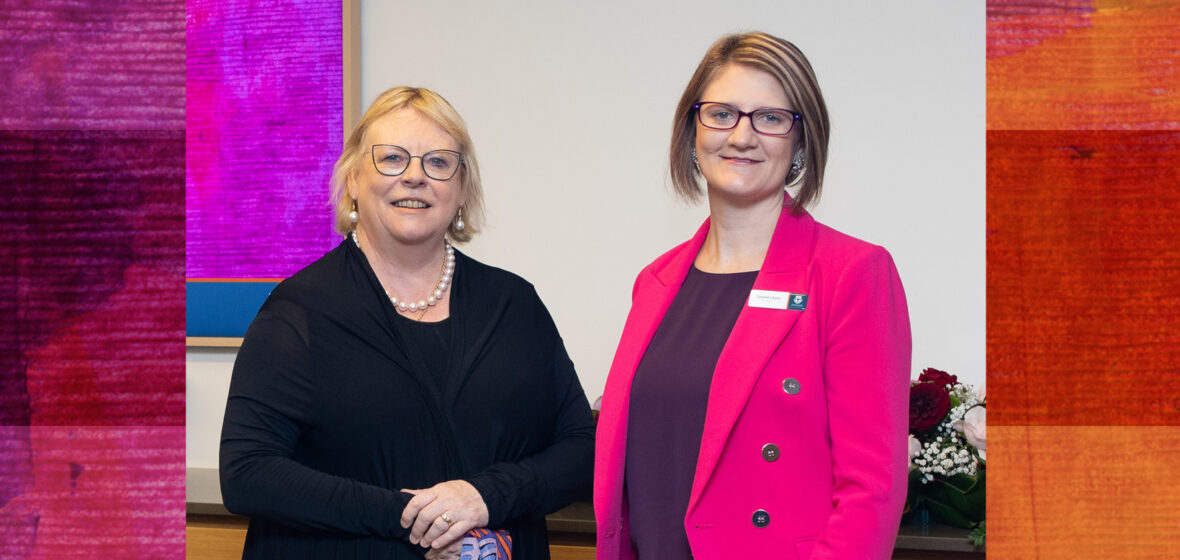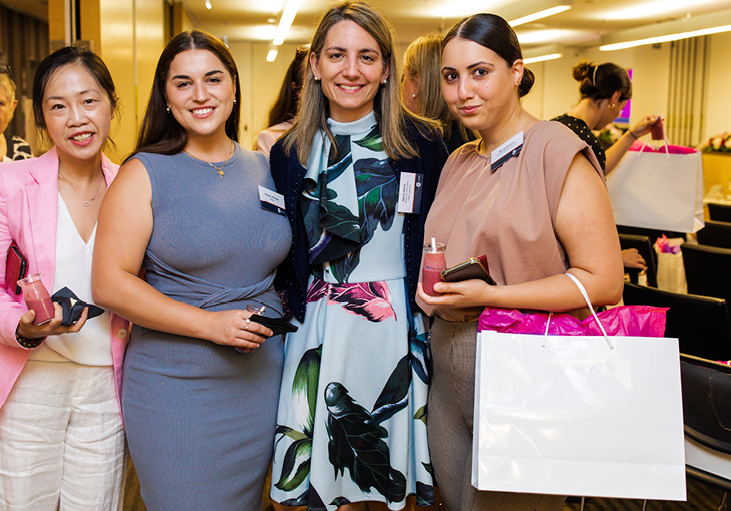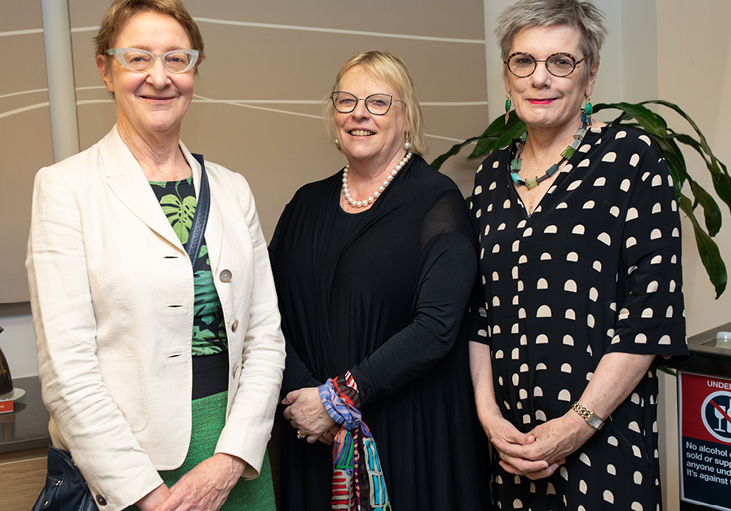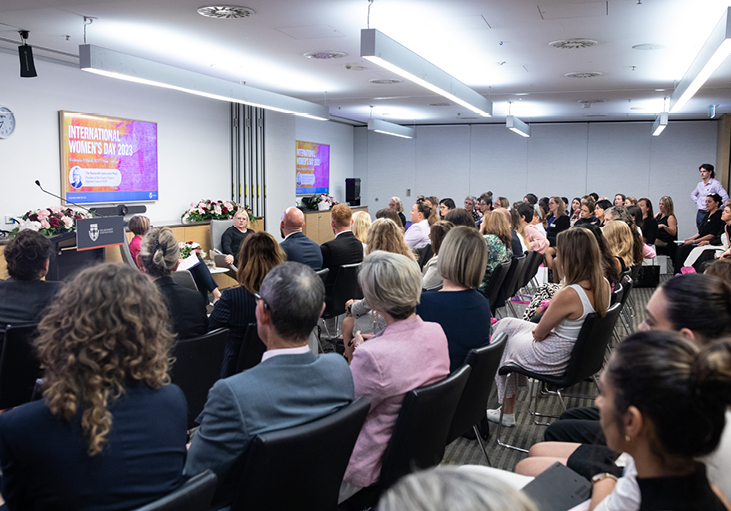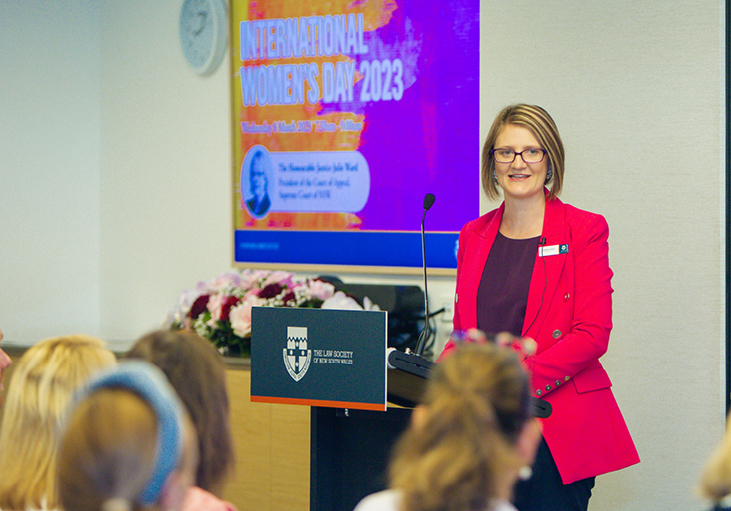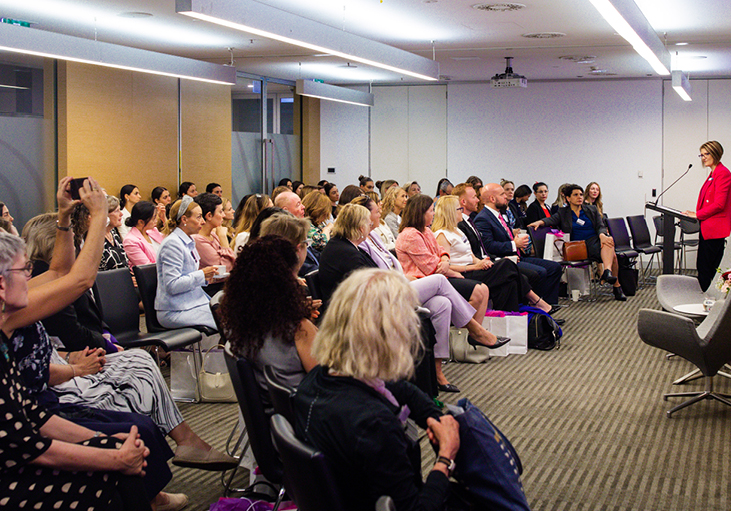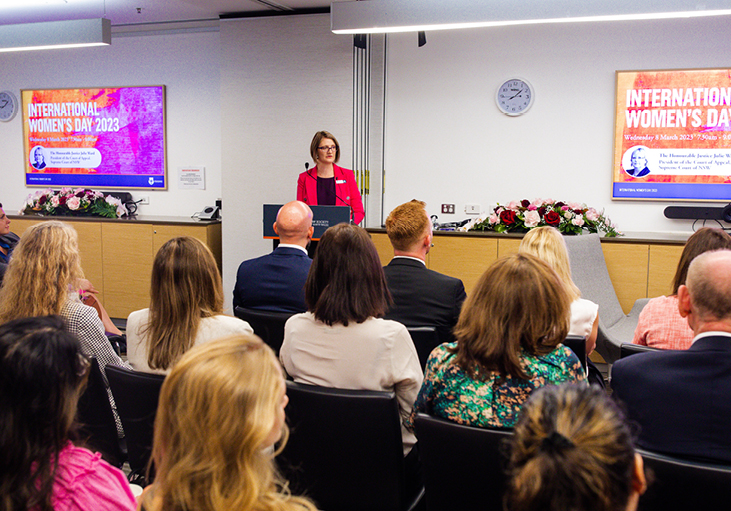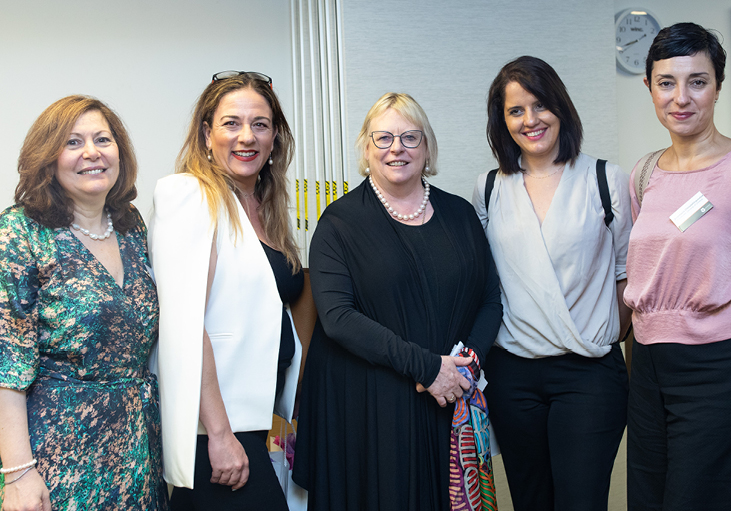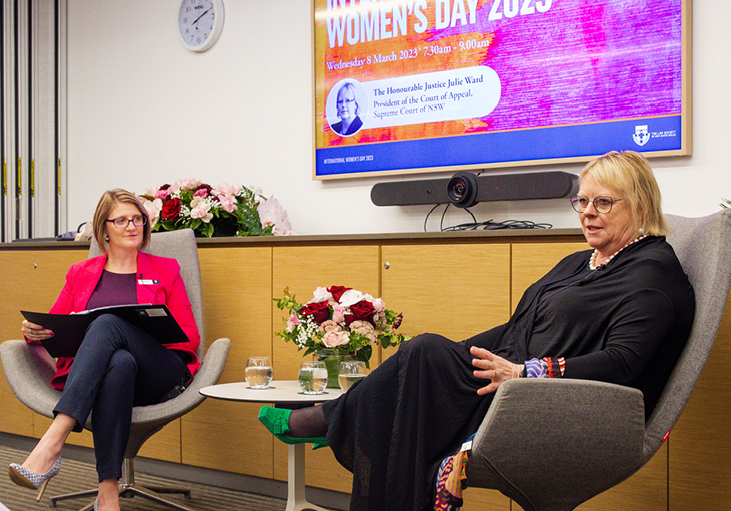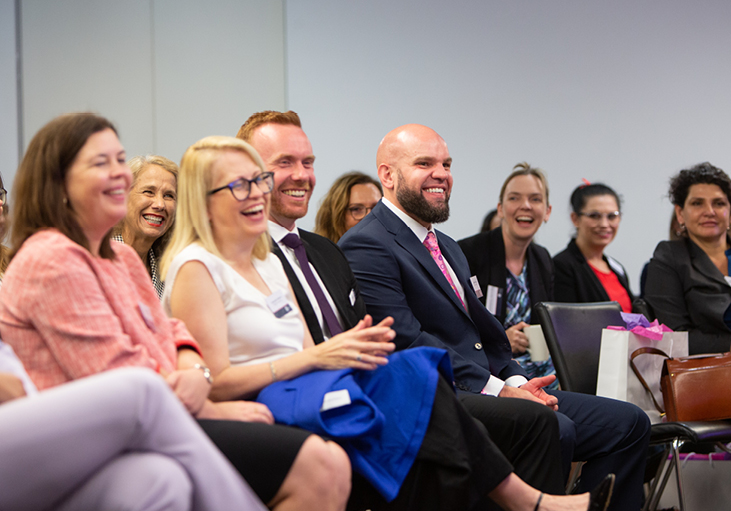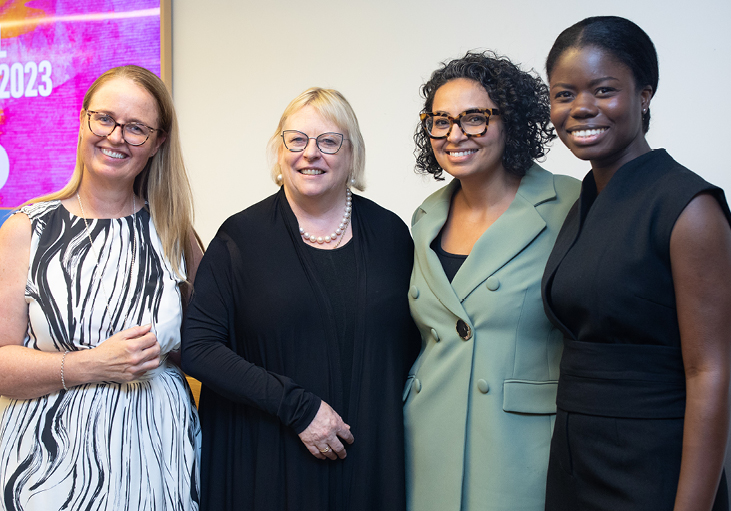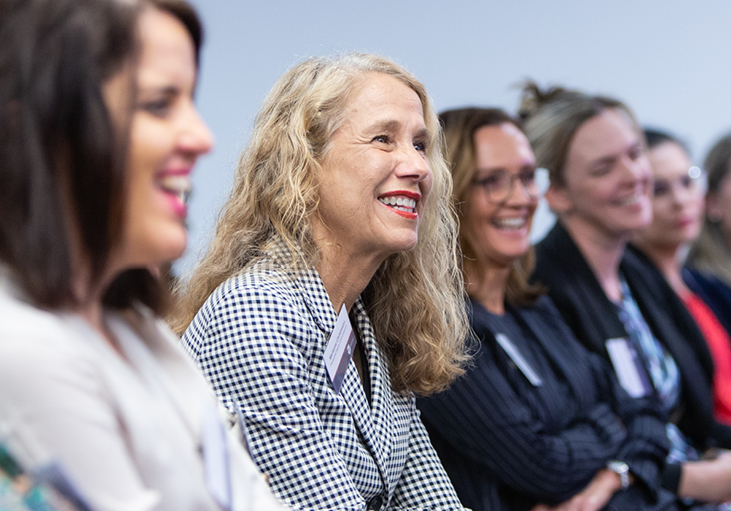There is no doubt I think there is a way to go for women in the profession. But I do think the glass ceiling has been broken in a lot of the areas that women would be willing to practise.
The legal profession must ensure there are more options for women to return to work after starting a family to curb drop out numbers and bridge the superannuation gap, the Law Society of NSW’s International Women’s Day event heard.
President of the Court of Appeal Justice Julie Ward told a packed breakfast event on Wednesday 8 March that although there are moves in large law firms to make it easier for women to come back after maternity leave in terms of flexible hours and job share arrangements, there is still more to be done.
Her comments come as the Australian Institute’s Centre for Future Work released new research on International Women’s Day revealing Australian women earn $1 million less over their working lives than men and retire with $136,000 less in superannuation.
“The cause of the drop off in numbers of female solicitors is always a difficult one because there comes a point where people need to decide what they want to do with their career and personal lives. I don’t know if the drop off is because of professional dissatisfaction all the time, but sometimes it is about re-prioritising your life,” Justice Ward said.
“I’m not one to say that somebody who wants to stay at home and be a full-time mother or someone who wants to do a job that is less demanding in conjunction with motherhood is the wrong decision. It is an individual decision. What we need to do is make sure there are options available so that women can come back to work after maternity leave.
“I had a senior associate once who said to me that she wasn’t moving towards partnership because she had seen the sacrifices that I had made, and she didn’t want to have to do the same. I was horrified by that because if you asked me, I would have said that I had not made sacrifices. I had just approached my life on the basis that I couldn’t see how I couldn’t do both.”
Prior to her appointment as President of the NSW Court of Appeal early last year, Justice Ward’s career highlights include being the youngest female partner appointed at Mallesons in 1988 and, in September 2008, the first female solicitor directly appointed to the Supreme Court bench.
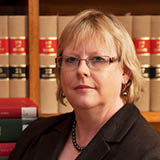 Justice Julie Ward
Justice Julie Ward
During the discussion with the Law Society’s President Cassandra Banks, Justice Ward said the higher courts of NSW need to meet the efforts by the Local and District courts to achieve greater gender parity.
“Looking at the court that I am in, we aren’t much closer to achieving gender parity, if at all, than we were when I started,” she said.
“On the Court of Appeal, we have three female judges, so that means statistically you have [one] woman on the bench most often. Occasionally we will have benches that are all female. But it would be better if we had more women in the divisions.
“Everyone is conscious of the need to have diverse representation, but the issue is not so much now with gender parity, but with diversity in other areas of the bench too.
“There is no doubt I think there is a way to go for women in the profession. But I do think the glass ceiling has been broken in a lot of the areas that women would be willing to practise.”
To this point, Banks added: “There is a saying that you can’t be what you can’t see. Today that is even more important to be able to see female leaders, and for people to put their hands up so that younger solicitors in particular can see what they can be. That leadership role we all play in this room is critical.”
Justice Ward weaved her personal humour throughout the event and on many occasions had the room laughing.
Her Honour spoke about her time as an associate with Justice Nigel Bowen, an eminent Australian Barrister, Federal Attorney General and Judge, noting an incident where a self-represented litigant came to court with knives strapped to the inside of his coat before the days of security and metal detectors.
“Police came up to chambers and said they needed to speak to Sir Nigel because the appellant had been observed to have a knife on his person. Sir Nigel said, ‘that’s alright because my associate sits in front of me’,” Ward relayed.
In her 2008 swearing-in speech to the Supreme Court, Ward recalled a time as an associate when she offered to make Justice Bowen a coffee and was subsequently admonished for “adopting such an accommodating role”.
“I didn’t follow his advice, and I did make him a cup of coffee. It was his advice to say, ‘don’t take the subordinate role’. I saw examples of that when I was a solicitor where it would be the female partner who might be asked to do the photocopying as opposed to the young male clerk. But you have to pick your battles,” she told the Law Society’s audience.

